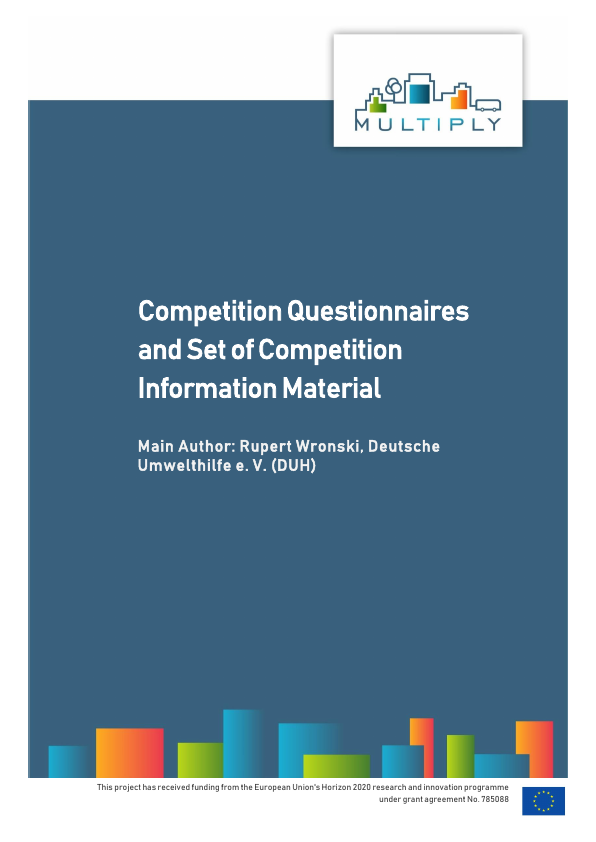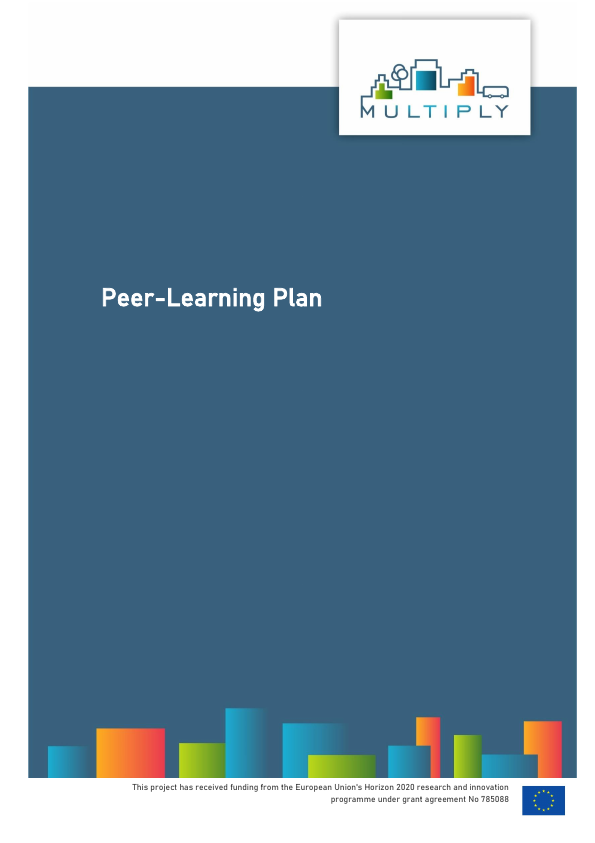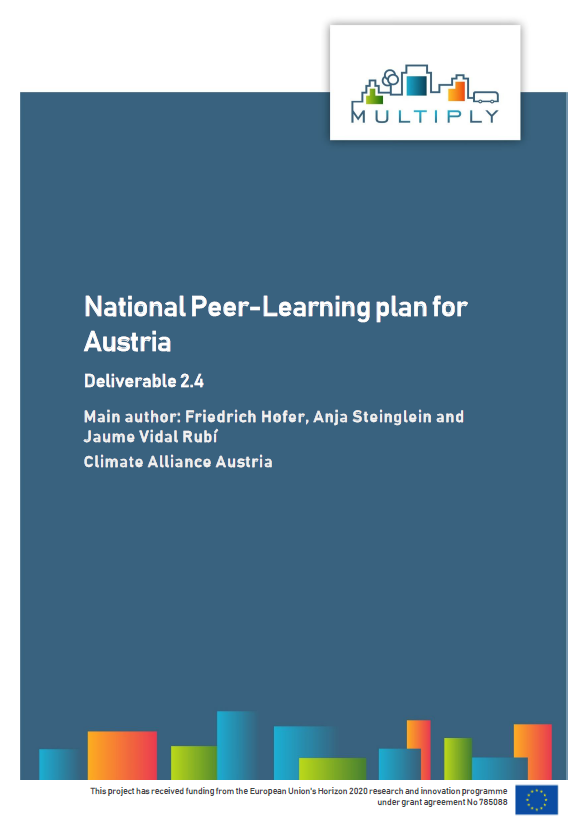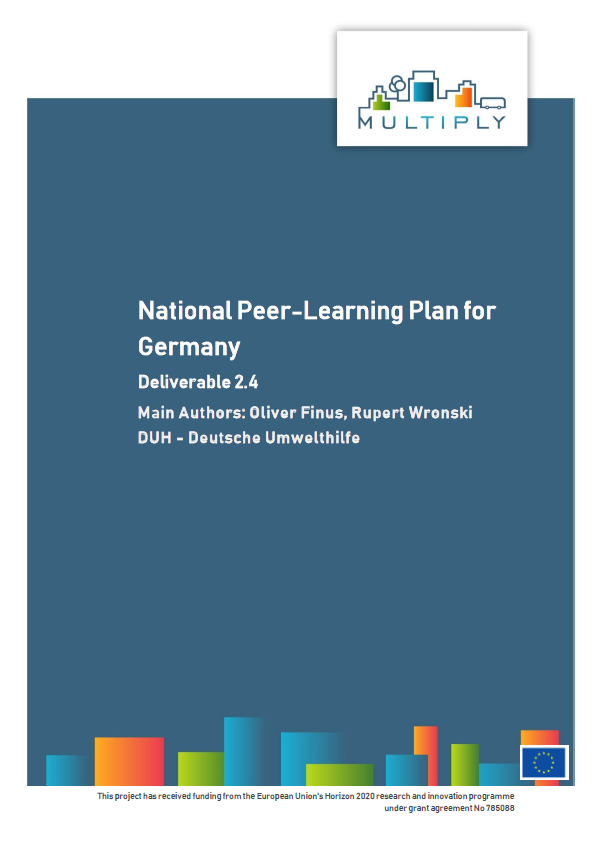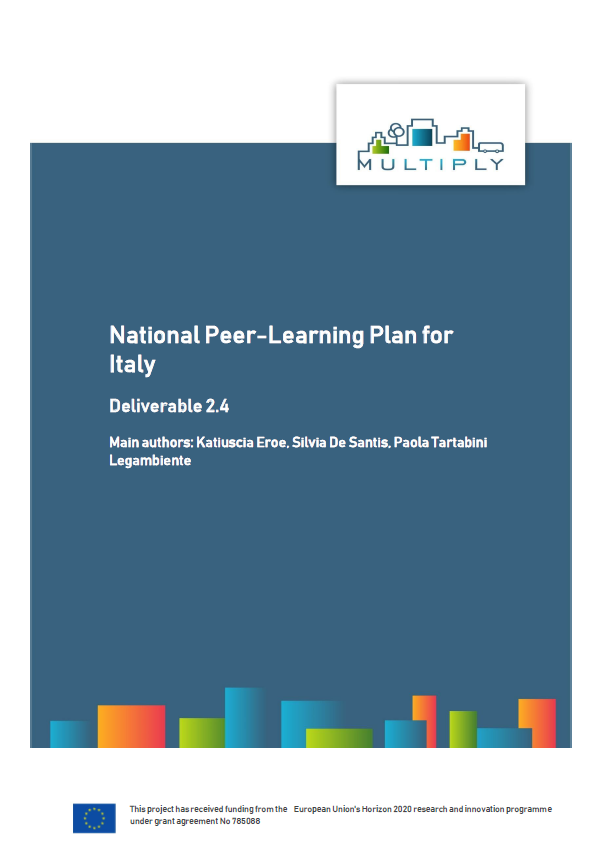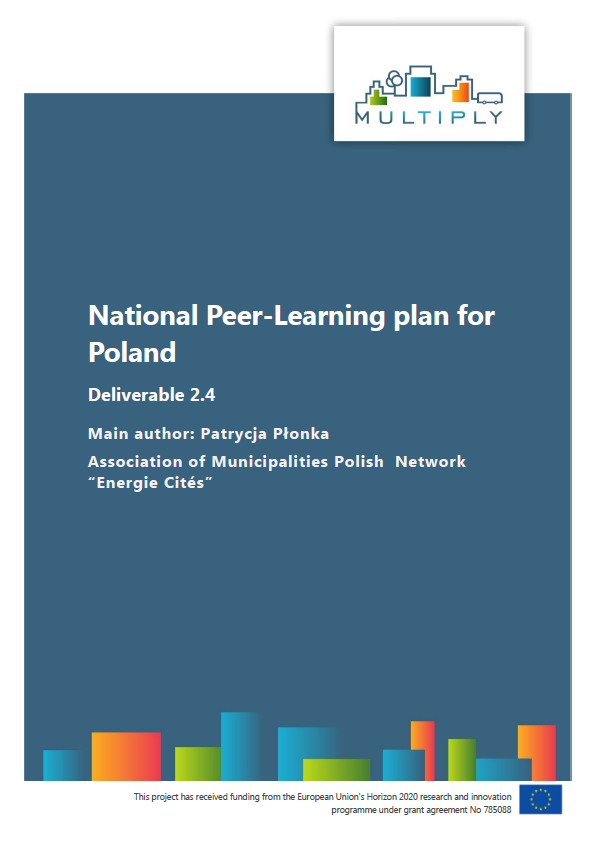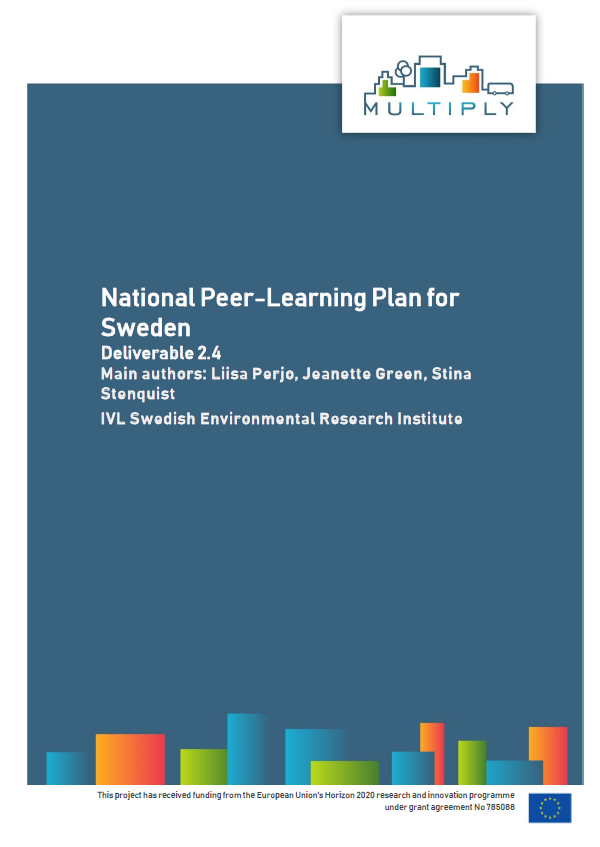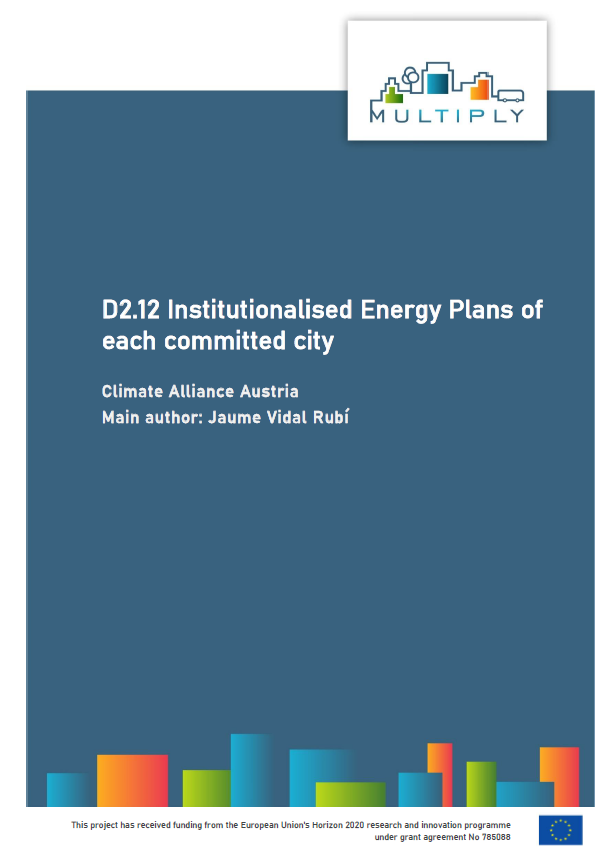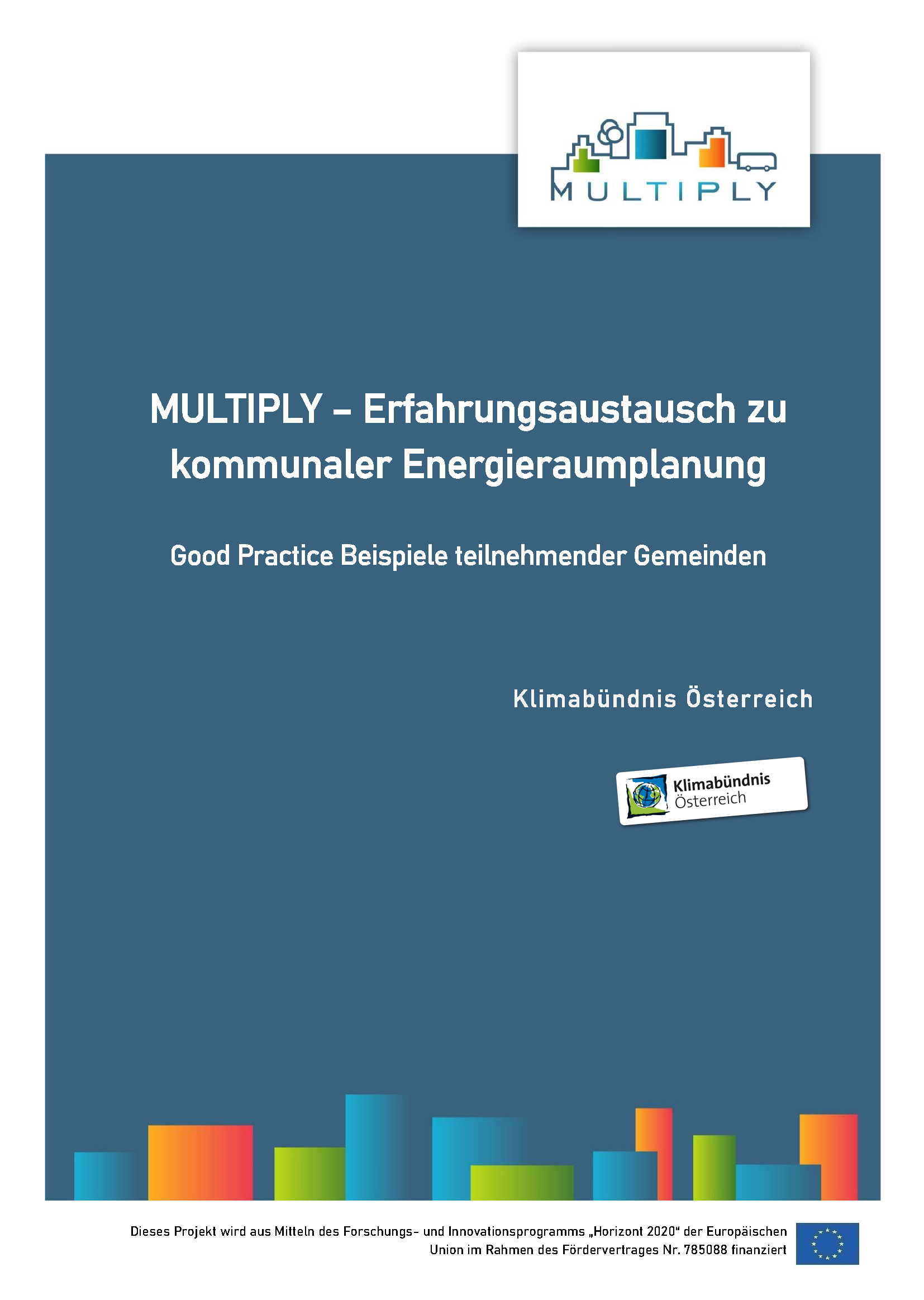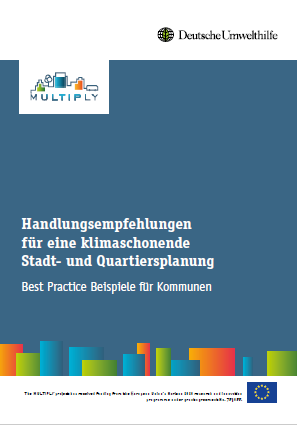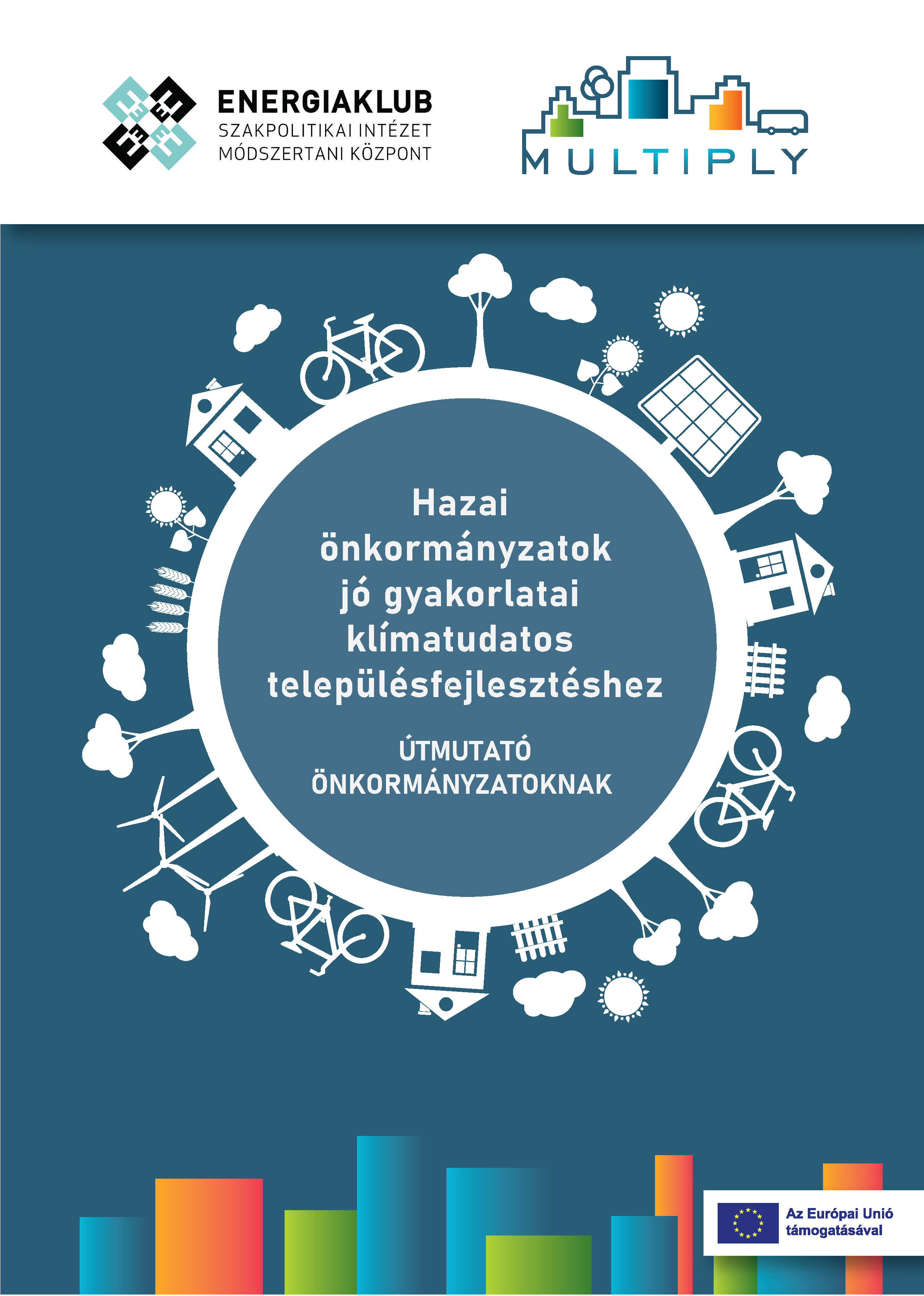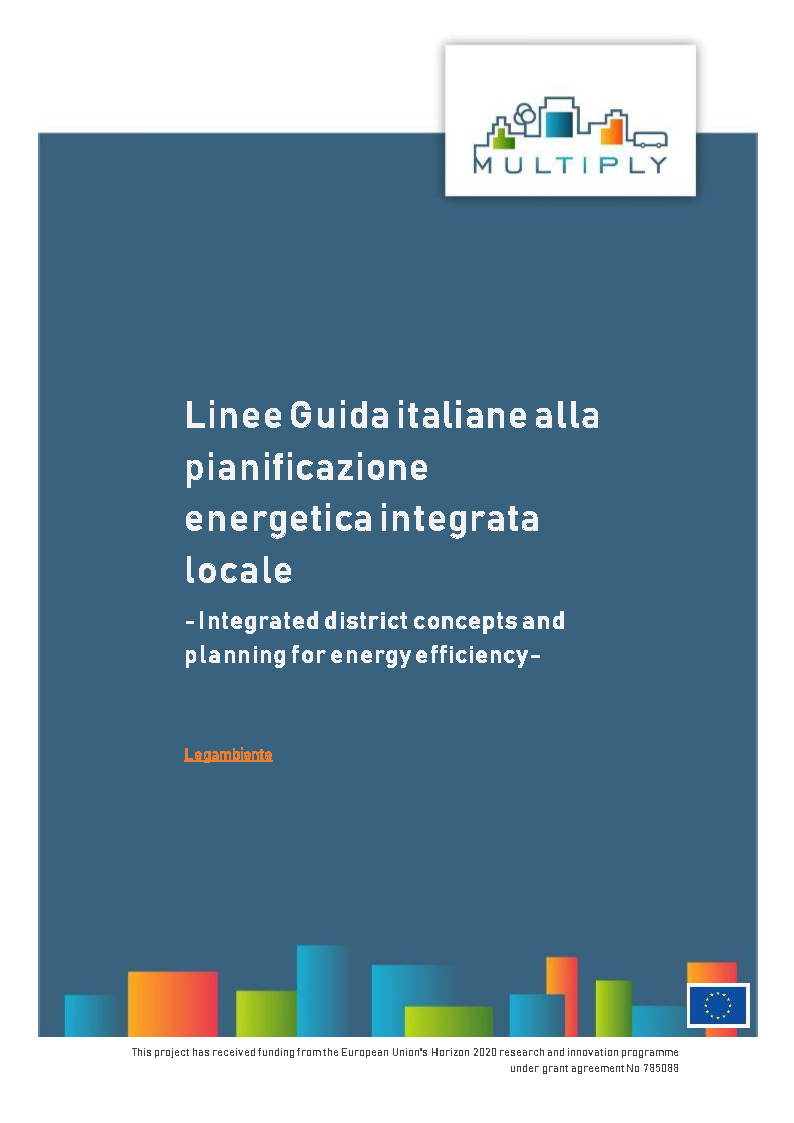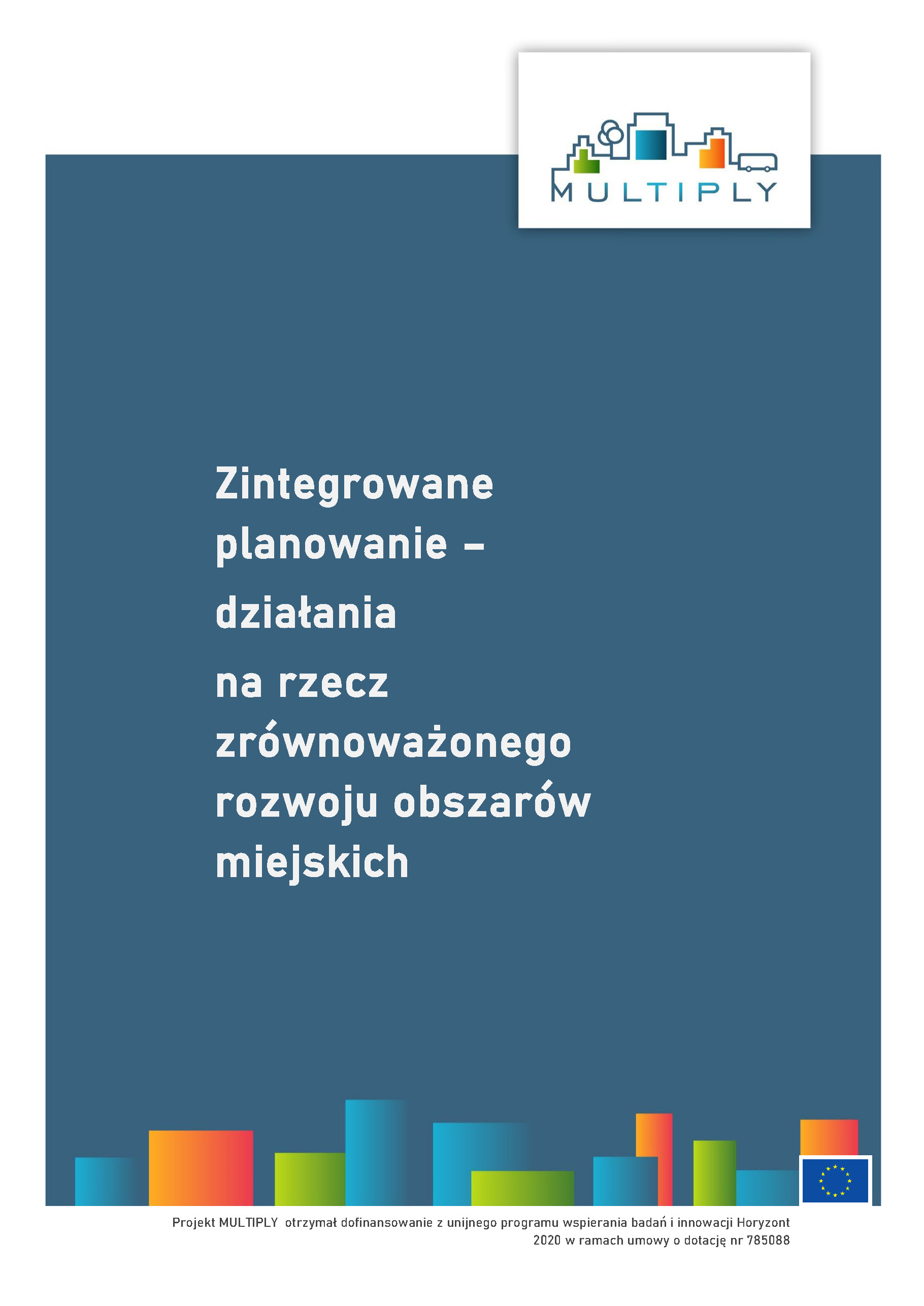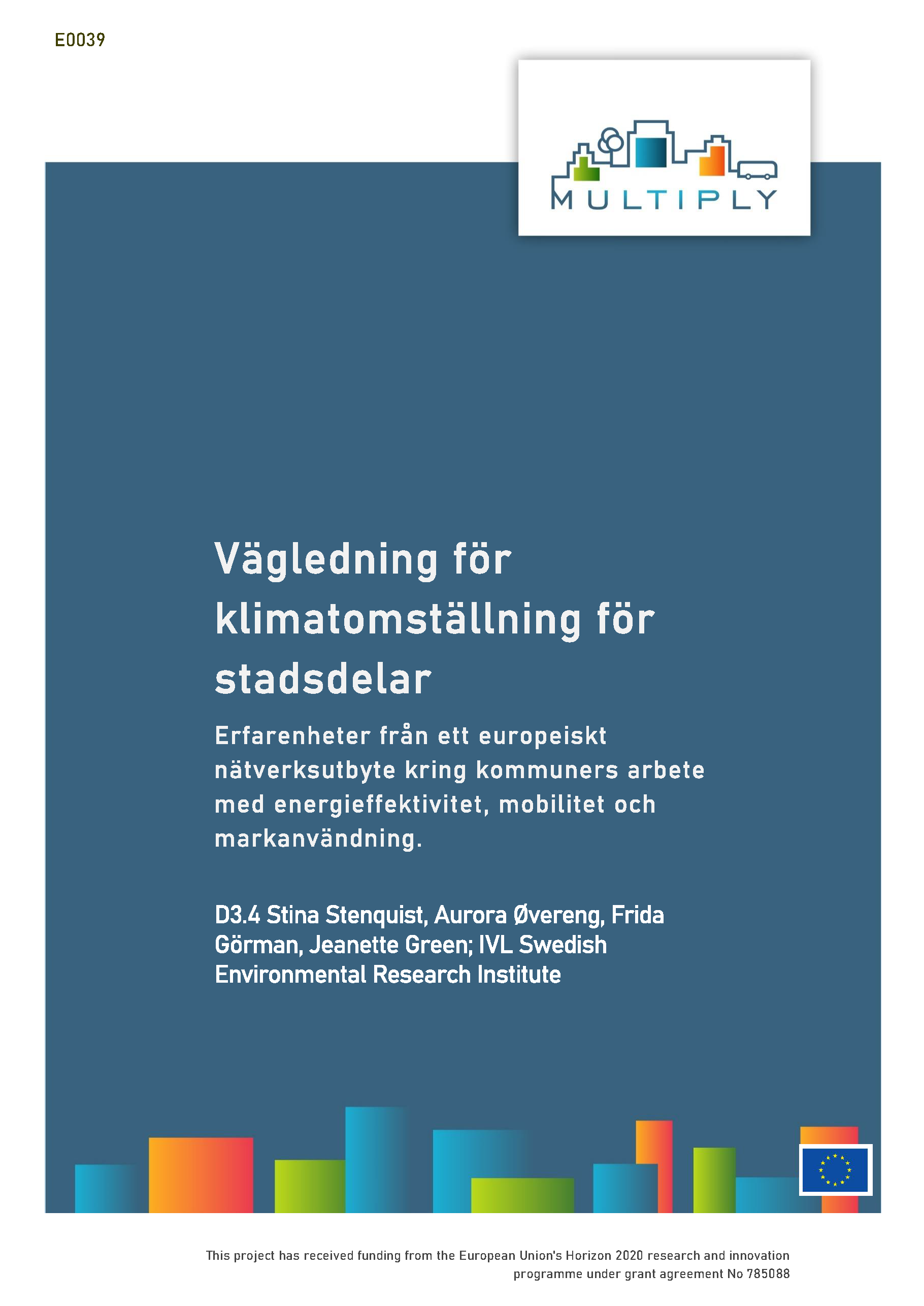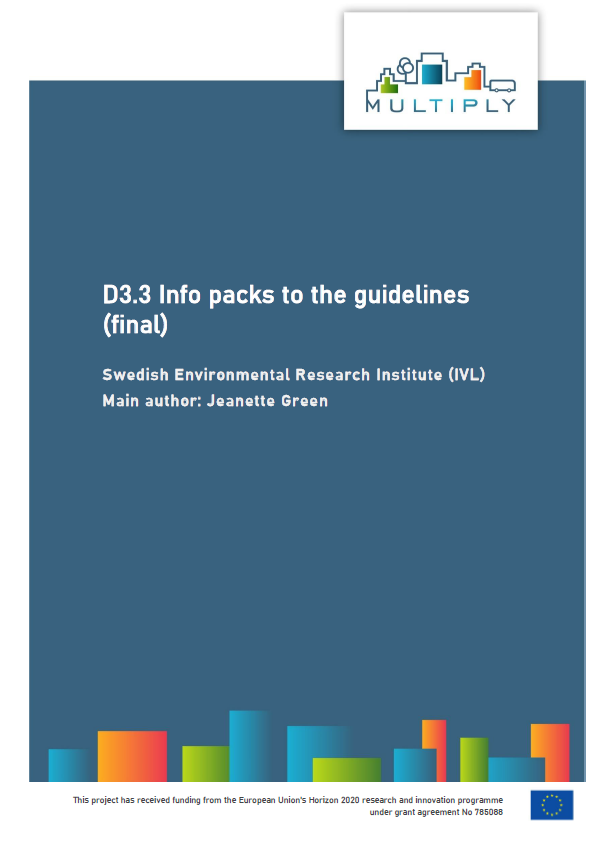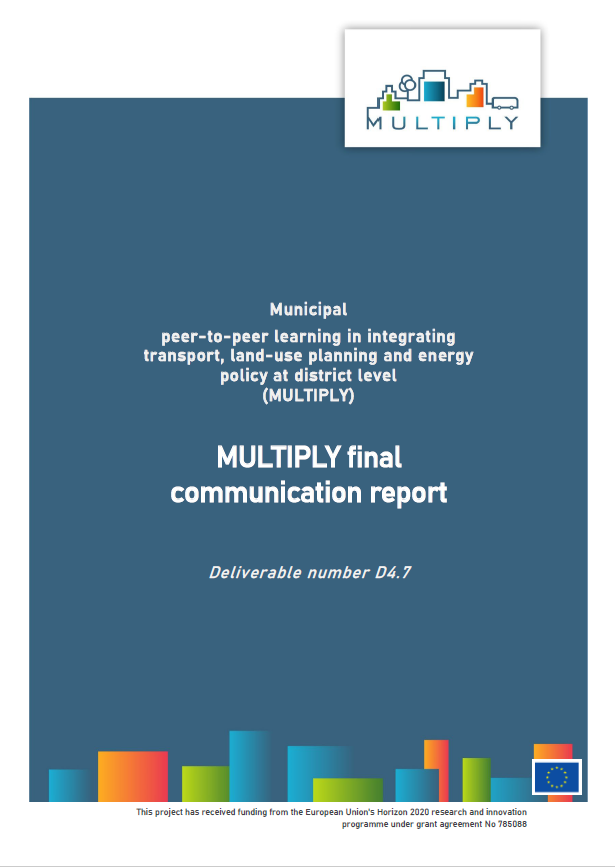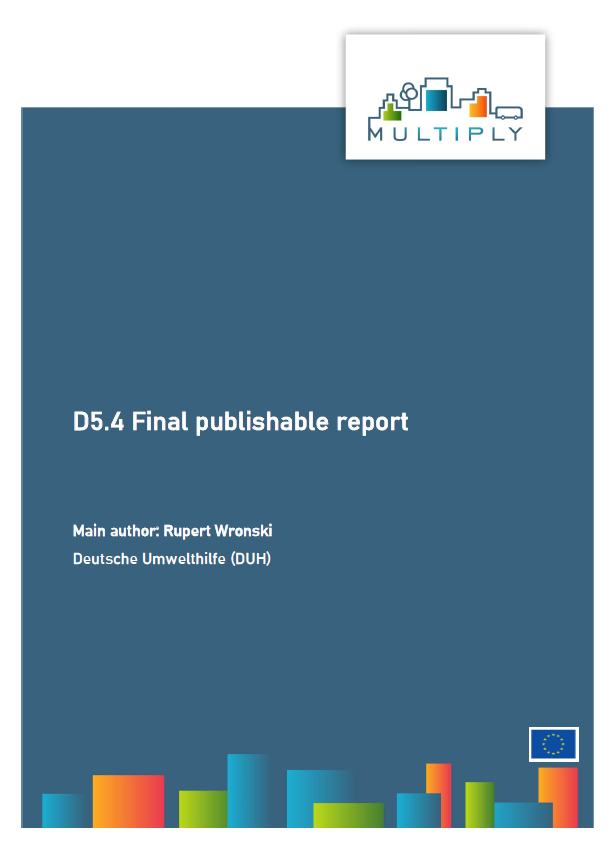In our MULTIPLY library you can find many interesting documents and links gathered for you by the project partners. The documents include:
Competition questionnaires and set of competition information materialThis document provides an overview ofthe general approach and rationale of the competition and theconcreteefforts taken by allproject partners to kick-start theirnational competitions. It focuses on the national competition questionnaires and online information material developed, but also briefly sums up all additional efforts. This way, it can serve as a source of inspiration for similar projects. |
|||||||||
Peer-learning planMULTIPLY’s P2P learning program aims at increasing the capacities of municipal politicians, technical planning staff and communications representatives of 24 committed cities and of 18 forerunner cities to effectively plan, finance, communicate and implement the energy transition. With increased capacities acquired during the MULTIPLY project will help local authorities to implement the ambitious energy projects within their municipalities and districts. This approach will empower local authorities and decision makers to plan and deliver a successful energy transition with high levels of support by the people. For more, please get familiar with general Peer-to-peer learning plan developed within the project. Below you can also find Peer-learning plans for each country: |
|||||||||
|
|
|||||||||
|
You can also get familiar with evaluation of the P2P exchanges and the presentation of findings, conclusions and recommendations based on the gained experience here. |
|||||||||
|
Institutionalised Energy Plans
|
|||||||||
|
National GuidelinesEach partner will develop a National Guideline, which provide adapted and in-depth information about integrated energy efficiency solutions and the model districts in the forerunner and committed cities. These guidelines are adapted to the conditions in each country and contain the specific national insights and measurements gained during the peer-to-peer learning programme. These guidelines aim to encourage further multiplication of integrated district approaches in the six countries. The results are presented in a way that creates and encourages concrete action and implementation. Therefore, the books include clear instructions and in-depth advice, to ensure the multiplication of concepts like those developed during the project. Please find below all country versions. |
|||||||||
|
|
|||||||||
|
Info packs
|
|||||||||
|
Austria: Germany: Hungary: Italy: Poland: Sweden: |
|||||||||
Program, minutes and press release about the European conference
|
|||||||||
Final communication report
|
|||||||||
|
Final publishable report
|
|||||||||
|
VideosLook at also on our videos about the work done by the Austrian forerunner municipalities on the topic of integrated transport, energy and urban planning. (only German)
|
Project information materials:









